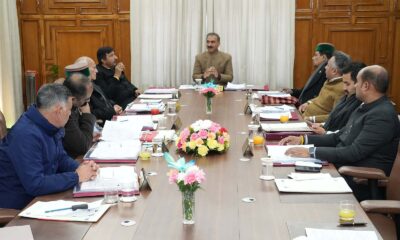Nation
Covid-19 Needs a Regional Response, Say Physicians and Activists at SAPAN Meeting
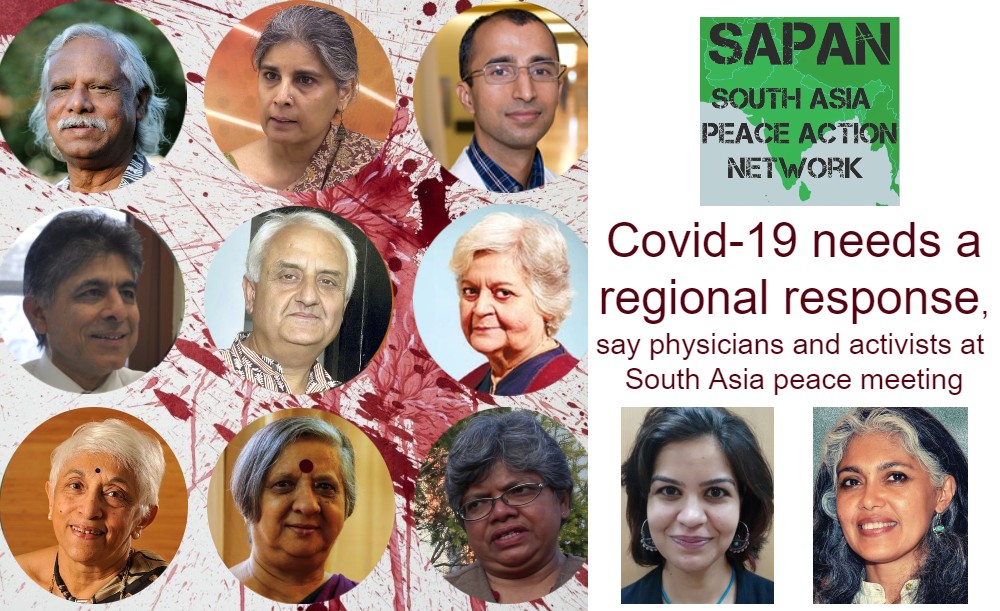
Peace activists under the SAPAN platform conducted an event on Sunday which included prominent physicians like Dr Zafrullah Chowdhury, Dr Anup Subedee, Dr Vandana Prasad, and Dr Hamid Jafari of Pakistan (led the team that eradicated polio in India). Speakers included Salima Hashmi, Khushi Kabir, Kanak Dixit, Lalita Ramdas, besides journalists Beena Sarwar, Mandira Nayar and others. Activist Priyanka Singh conducted the event.
“South Asian countries cannot go it alone, that’s irrational,’’ said Dr. Zafrullah Chowdhury, renowned public health activist and Ramon Magsaysay awardee from Bangladesh.
The hard lockdown in his country will lead to furthering the inequalities in society, he warned, emphasizing that it is irresponsible to impose lockdowns without providing food. “Poverty has increased. There are 25 million more poor without food.”
Dr Chowdhury was among the physicians and health right activists across countries who came together on Sunday 27 June at a webinar organised by the South Asia Peace Action Network (SAPAN) to emphasize that the coronavirus pandemic must be fought collectively.
The third in the series of SAPAN’s monthly public webinars themed ‘Imagine: Neighbours in Peace’, the meeting focused on health as an entry point to talk about South Asian regionalism and Healthcare for all. Three main aspects deliberated included:
– How the pandemic is affecting rural areas of South Asian countries, hurdles in treatment, and access — or lack thereof — to vaccinations.
– How COVID-19 has affected mental health, women and particularly women in rural areas of all the countries of the region
– How the challenges are similar in all countries of the region and require similar solutions.
The meeting took place at a time when South Asia is reeling from the devastating second wave of Covid-19, especially in India. With Delta plus virus mutation now detected in parts of the region, the possibility of another wave looms large.
Journalist Mandira Nayar in Delhi moderated the physicians’ panel with Dr Zafrullah Chowdhury in Dhaka; infectious diseases specialist Dr Anup Subedee in Kathmandu and public health activist Dr Vandana Prasad also in Delhi. Dr Hamid Jafari of Pakistan, who led the WHO team that eradicated polio in India, joined from his current posting in Jordan.
Dr Chowdhury advocated challenging vaccine-producing countries and pushing South Asian governments to invest more in public health.
Participants also noted that the pandemic has particularly hit women hard.
“Domestic violence has increased,” noted Dr Prasad. Women often lack control over finances, are primary caregivers and shoulder the responsibility of caring for the ill. The pandemic has pushed women further into the margins, she said, adding that there is also a “gender dimension to the access of vaccines”.
She urged doctors to enter the peace activism domain, because the poor all over are at the brink of disaster.
Dr Prasad drew attention to the gendered nature of pandemic and frontline workers, as well as Dalits, indigenous people, other minorities. “Telemedicine is important, but we must not lose focus on need for ground-based public health to begin with”.
Frontline workers in India, the accredited social health activist (ASHA) workers often lack training, safety equipment and often doesn’t get her wages for months.
While highlighting that a public health system is meant to be a great equaliser, Dr Anup Subedee noted how the pandemic exposed systematic failures in many aspects of life in Nepal, referring not only to the grievous impact on non-Covid healthcare – like child immunization and maternity care – but also the painful ordeals of healthcare community itself.
He shared how the healthcare community in Nepal has been compelled to deal with threats of violence, lack of access to personal protection equipment, prospects of income loss without any social security system support, and an unaddressed mental health crisis among healthcare workers.
Doctors at the meeting endorsed the need for greater cooperation and collaboration across borders. Participants called on the governments to allow free flow of critical equipment and medical personnel across borders. Prime Minister Narendra Modi had floated the idea of a SAARC medical visas for patients and for medical teams to assist during the pandemic – something that must be followed up.
The doctors also urged the international fraternity to push for a Trade-Related Aspects of Intellectual Property Rights, or TRIPS, waiver so that the Covid-19 vaccine production can be ramped up. “It is the way forward for vaccines for all,’’ asserted Dr Prasad.
Activist Khushi Kabir in Dhaka introduced the event. She talked about connections, sharing her memory of how Dr Haroon Ahmed, one of the event’s speakers, was her physician when she was a child and he was starting work at a government clinic in Karachi. Dr Haroon was unable to join at the last moment due to ill health.
Wishing him a speedy recovery, Khushi commented, “Each time we meet, there are more losses people who have been part of our journey”. As at the previous SAPAN meeting there was a commemoration of mentors and leaders whose vision SAPAN is taking forward, like Asma Jahangir and Dr Mubashir Hasan, and Nirmala Despande and others.
There was also a moment of silence to express condolences and share the grief of the families and friends of those lost to Covid and other causes over the past month. “Since we were unable to memorialise everyone, the presentation could only be symbolic,” noted Khushi Kabir.
The In Memoriam slideshow includes journalist Ghazi Salahuddin’s three siblings taken by Covid in as many weeks, including Dr Aquila Islam, Pakistan’s first woman nuclear physicist. It also included the legendary runner Milkha Singh and his wife, volleyball champ Nirmal Saini who died within days of each other, and radiologist Chinna Dua, 56, wife of journalist Vinod Dua. She had endeared herself to music and poetry lovers across the region when she joined Tina Sani some years back at the Faiz Festival in Karachi – on Facebook at this link.
Ghazi Salahuddin has written about his family tragedy in a brave and heartbreaking oped for The News, Partings without goodbyes (20 June 2021), noting: “my struggle to cope with this terrible bereavement was eased a bit when I reminded myself that this pandemic has devastated so many families across the world…”
Several well known activists and experts also joined from Pakistan, India, Bangladesh, Nepal and elsewhere, including Hina Jillani, Urvashi Butalia, Jean Dreze, Kavita Srivastava, Shireen Huq, Kanak Mani Dixit and others.
The South Asia Peace Action Network (SAPAN) is primarily a coalition of individuals and organisations aiming to take forward a peace agenda for the region, building on the work done by mentors and leaders over the last few decades.
SAPAN founder and curator Beena Sarwar shared the story of this network and her vision for an inter-generational, multi-sectoral, inter- and intra-regional coalition of individuals and organisations coming together in broad consensus for a one-point agenda.
Facebook live recording is online at this link.
Source: SAPAN, Beena Sarwar, Kanak Mani Dixit, Mandira Nayar, Rida Anwaar, Rehmat Merchant, Priyanka Singh and some other peace activists present in the virtual session
Nation
Most Covid Restrictions to be Lifted From March 31, Mask and Hand Hygiene to Continue
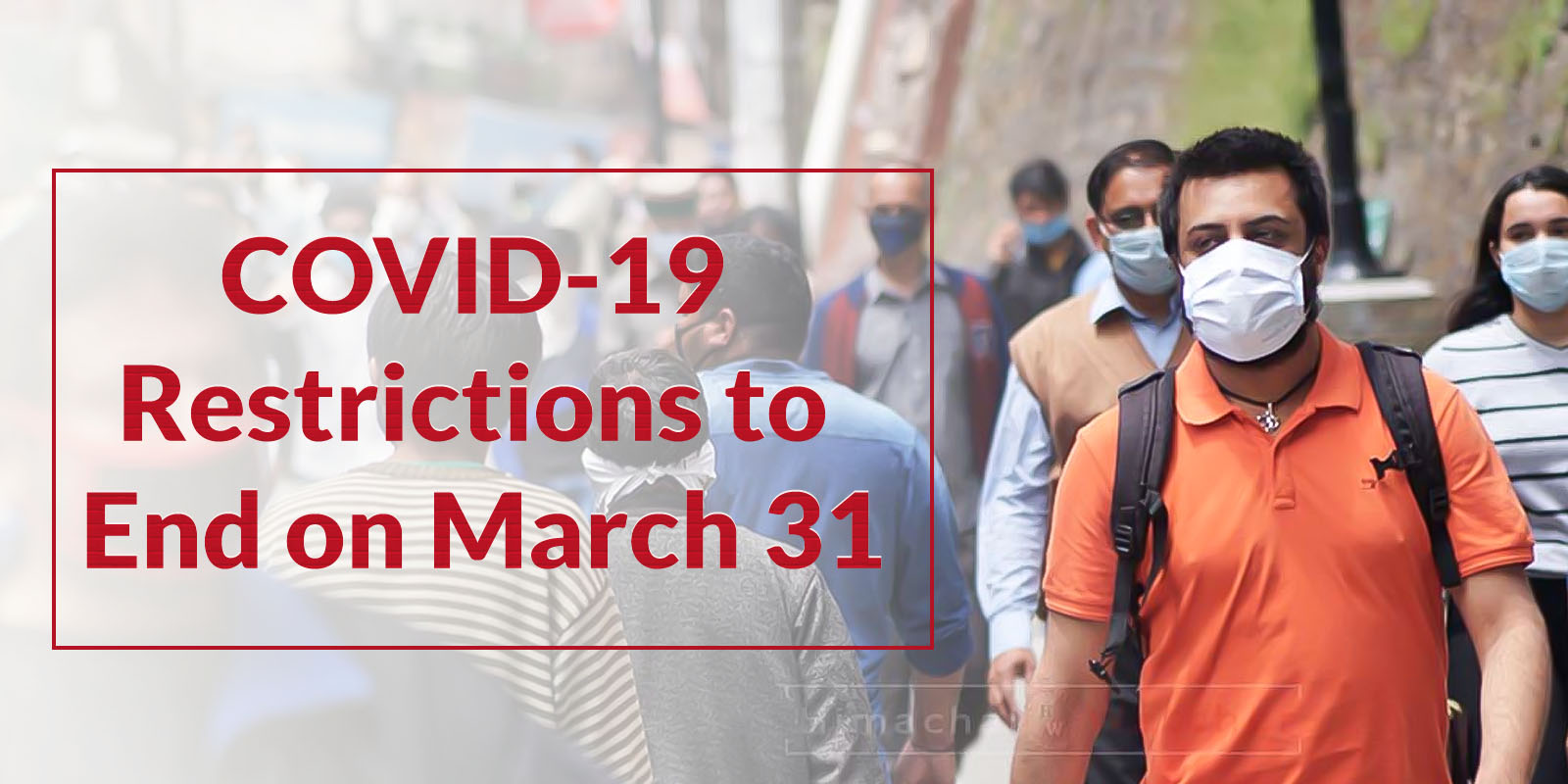
New Delhi-The Centre has issued a notification to the States informing that the provisions of the Disaster Management (DM) Act, 2005 will not be invoked in the country after March 31. The Union Health Ministry said that the use of face masks and following hand hygiene will continue.
It implies that most of the Covid-related rules and restrictions would end.
Union Home Secretary Ajay Bhalla issued the notification which said that the decision was taken following the overall improvement in the situation and the preparedness of the government in dealing with the COVID-19 pandemic.
However, local authorities and State police can still invoke fines and criminal cases against persons violating COVID-19 norms under the Indian Penal Code (IPC), a senior government official said.
The DM Act was invoked on March 24, 2020, due to the pandemic
“Over the last seven weeks or so there has been a steep decline in the number of cases. The total caseload in the country stands at 23,913 only and the daily positivity rate has declined to 0.28%. It is also worth mentioning that with the combined efforts, a total of 181.56 Cr vaccine doses have been administered,” the notification said.
“I would like to mention that in view of the nature of the disease, we still need to remain watchful of the situation. Wherever any surge in the number of cases is observed, the States/UTs may consider taking prompt and proactive action at a local level, as advised by MoHFW (Health Ministry) from time to time,” the notification said.
The Indian government had issued various guidelines and measures for the first time on March 24, 2020, under the Disaster Management Act to curb the COVID-19 situation in the country, which have been modified several times thereafter.
India currently has 23,087 active COVID-19 cases and recorded 1,778 new cases and 62 deaths in the last 24 hours. The daily positivity rate has also declined to 0.28%.
Nation
Vaccination of 15-18 Year Age Group in India from Jan 3, Precautionary Dose for Frontline Workers from Jan 10
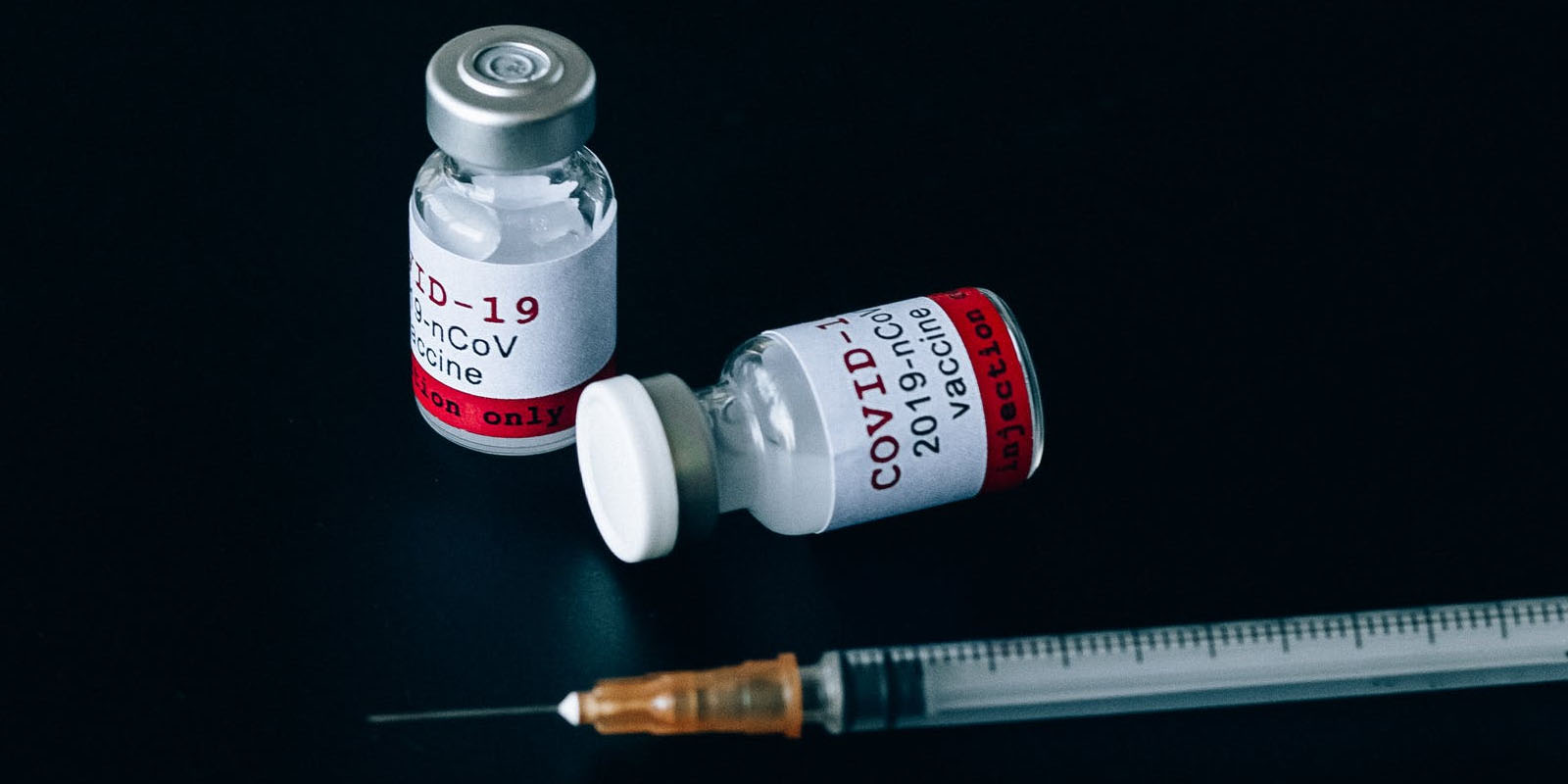
New Delhi-India will begin vaccination of the children in the age group of 15-18 years from 3rd January 2022. The move is likely to aid in education normalization in schools. The announcement was made by Prime Minister Narender Modi on Saturday evening. He also announced a precaution dose (booster dose) for healthcare and frontline workers from 10th January 2022, Monday.
In India, this has been called the ‘precaution dose’ not booster dose. An option of precaution dose will be available for senior citizens above 60 years of age with co-morbidities on the advice of their doctors from 10th January 2022.
Referring to the Omicron infections In India, the Prime Minister requested the people not to panic and to follow precautions such as masks and washing hands repeatedly.
According to the Government, the vaccination campaign started on 16th January this year has crossed the mark of 141 crore doses, and 61 percent of the adult population of the country has received both the vaccines and 90 percent of adults have received one dose.
According to the Government statistics, currently, the country has 18 lakh isolation beds, 5 lakh oxygen supported beds, 1 lakh 40 thousand ICU beds, 90 thousand ICU and Non-ICU beds especially for children, more than 3 thousand PSA oxygen plants, 4 lakh oxygen cylinders and support to states is being provided for buffer doses and testing.
The Prime Minister assured that soon the country will develop a nasal vaccine and the world’s first DNA vaccine.
Photo by Nataliya Vaitkevich from Pexels
Nation
Three Farm Laws to be Withdrawn, Announces PM Modi Ahead of Elections in Punjab and UP
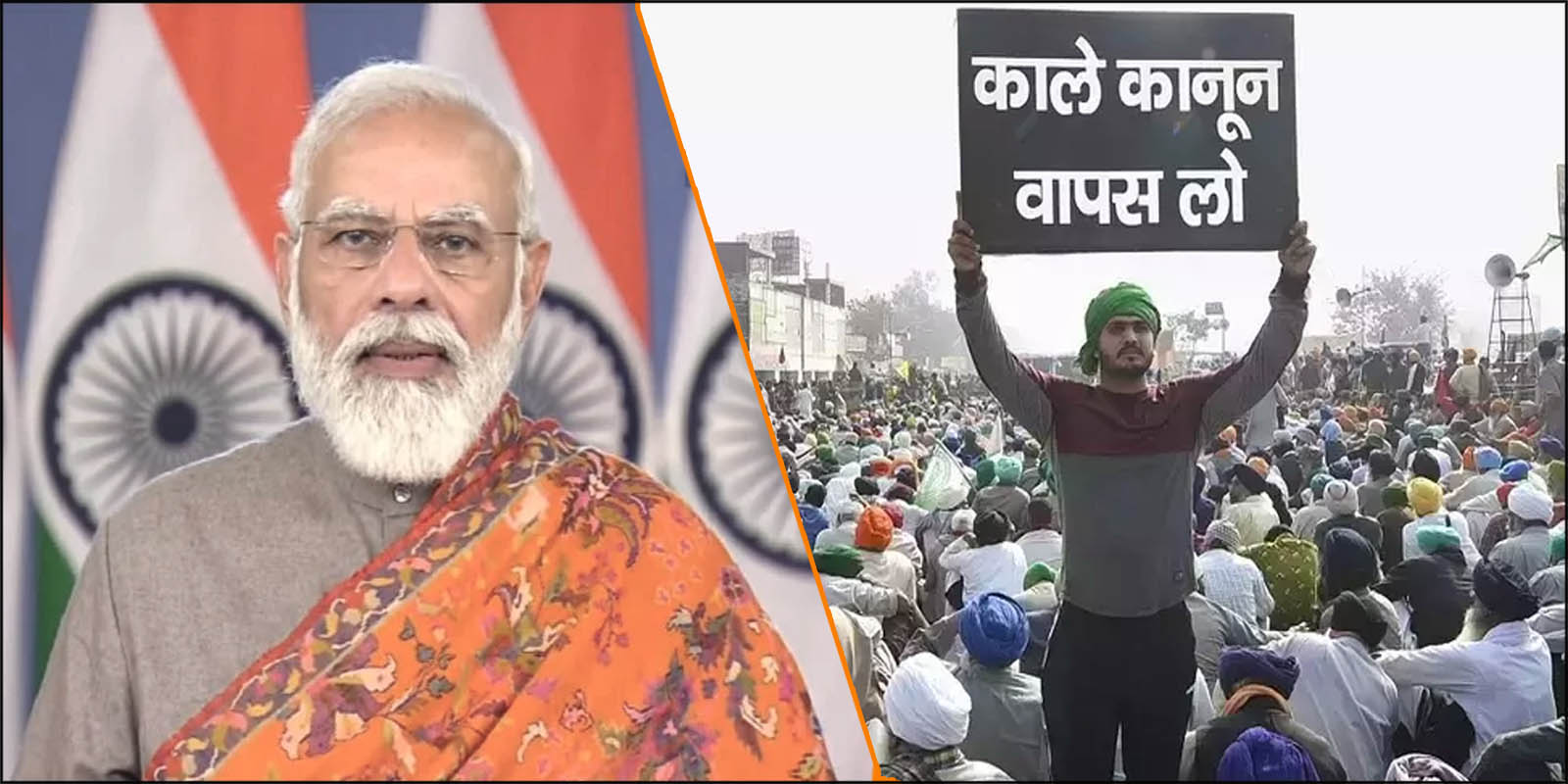
New Delhi: Ahead of assembly polls in Punjab and Uttar Pradesh, Prime Minister Narender Modi on Friday retreated from his stand on the three contentious farm laws and announced that the government will repeal three laws. He requested the protesting farmers to end the protest that has been going on for over a year now.
He said the three laws would be repealed in the winter session of Parliament starting later this month. He also said that though the laws were in the interest of the farmers, his government failed to convince them.
आज मैं आपको, पूरे देश को, ये बताने आया हूं कि हमने तीनों कृषि कानूनों को वापस लेने का निर्णय लिया है।
इस महीने के अंत में शुरू होने जा रहे संसद सत्र में, हम इन तीनों कृषि कानूनों को Repeal करने की संवैधानिक प्रक्रिया को पूरा कर देंगे: PM @narendramodi
— PMO India (@PMOIndia) November 19, 2021
The Prime Minister chose the occasion of Guru Nanak Jayanti to make this announcement. The decision is being perceived as an attempt to appease the farmers, especially in Punjab ahead of the assembly polls. Also, the results of by-poll held in various states are being seen as a setback to the ruling government that compelled it to reconsider its stand on the farm bills.
The Prime Minister said, “today I have come to tell you, the whole country, that we have decided to withdraw all three agricultural laws. In the Parliament session starting later this month, we will complete the constitutional process to repeal these three agricultural laws”.
It’s pertinent to mention that the Centre government had to announce a cut in taxes on petrol and diesel right after the results of bye polls were declared.
The three contentious bills are The Farmer’s Produce Trade and Commerce (Promotion and Facilitation) Bill, 2020, the Farmers (Empowerment and Protection) Agreement of Price Assurance and Farm Services Bill, 2020 and the Farmers’ Produce Trade and Commerce (Promotion and Facilitation) Bill.
The opposition Congress and farmers’ bodies have termed it a victory of their unity against the government’s decision. Former Chief Minister of Punjab, Captain Amarinder Singh was one of the first to welcome the decision through a Tweet.
Great news! Thankful to PM @narendramodi ji for acceding to the demands of every punjabi & repealing the 3 black laws on the pious occasion of #GuruNanakJayanti. I am sure the central govt will continue to work in tandem for the development of Kisani! #NoFarmers_NoFood @AmitShah
— Capt.Amarinder Singh (@capt_amarinder) November 19, 2021
यह जीत देश के किसानों की जीत है, लोकतंत्र की जीत है।
किसानों की जीत ने स्पष्ट कर दिया है- भारत में कभी तानाशाही हावी नहीं हो सकती, आखिर तानाशाह को झुकना पड़ा।#जीता_किसान_हारा_अभिमान pic.twitter.com/A9psOtBGq8
— Congress (@INCIndia) November 19, 2021


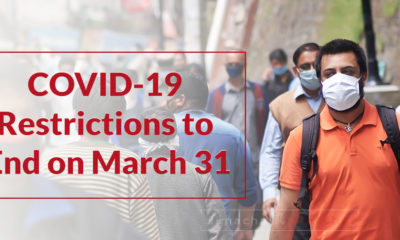

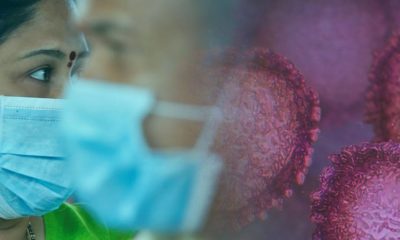

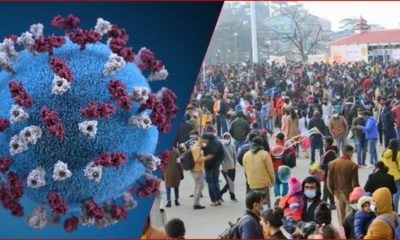







 Home Decor Ideas 2020
Home Decor Ideas 2020